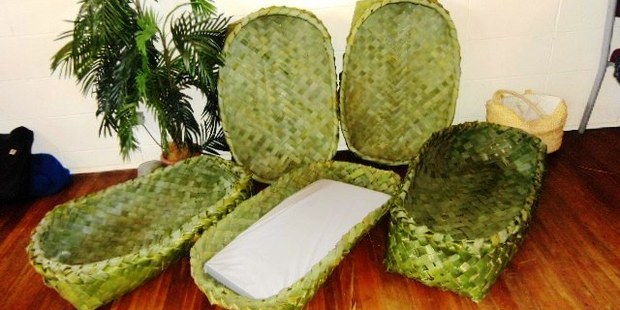Flax bassinets saving young lives
By Gary Farrow
12:59 PM Friday Jan 8, 2016

Around 60 babies pass away annually of sudden unexpected death in infancy (SUDI), occurring in their sleep.
Landcare Research's flax collection at Lincoln University has found an additional use in the creation of bassinets, or wahakura, with the aim of turning these statistics around.
Wahakura have been credited with reducing SUDI deaths by 30 percent.
Land Research flax collection curator Katarina Tawiri was initially approached with the idea of the wahakura project by Te Puawaitanga Ki Ōtautahi Trust, a Christchurch provider of health, education and social services to Māori.
Ms Tawiri is an experienced weaver herself, and in collaboration with Ngāi Tahu weaver Daphne O'Connell, she initiated workshops to teach midwives and expectant mothers to weave the bassinets.
Māori account for over 60 per cent of SUDI rates in New Zealand, and the project aims to help Māori and Polynesian women who are particularly at risk of SUDI occurring in their families.
"Traditionally Polynesian and Māori like to have their baby with them in bed. Wahakura allow parents to continue doing this but keep baby safe. They are such a simple solution to preventing unnecessary deaths," says Tawiri.
She comments although the wahakura being woven today are not a traditional item, Māori feel a connection to them because of the traditional material and their hand-made quality.
"Harakeke was and possibly still is one of the most important plants to Māori."
Flax has historically been the main fibre used by Māori to make many things, from clothes to food baskets. Tawiri says Māori are known to have hung woven baskets from the rafters to keep babies off the ground.
The extensive range of flaxes available from Land Research's collection provided a great opportunity for those involved in the project to find which species worked best for making wahakura.
The wahakura project is funded by the Red Cross, and will continue into next year, with Tawiri planning to share a set of guidelines for weaving wahakura with a wider community.
Like what you see? For weekly Element news sign up to our newsletter. We're also on Facebook and Twitter.
By Gary Farrow
No comments:
Post a Comment